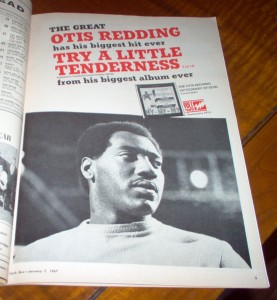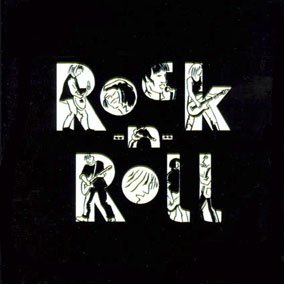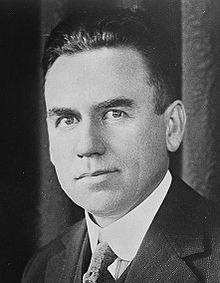Music Charts Magazine History
Music Charts Magazine History
– Song for the month of June 2013:
Otis Redding – “(Sittin’ On) The Dock Of The Bay”
Listen to Otis Redding’s “(Sittin’ On) The Dock Of The Bay” song here:
 Otis Ray Redding, Jr. (September 9, 1941 – December 10, 1967) was an American singer and songwriter, record producer, arranger and talent scout. He is considered one of the greatest singers in popular music and a major artist in soul music and rhythm and blues. His singing style has been influential among the soul artists of 1960s and helped exemplify the Stax Sound. After appearing at the 1967 Monterey Pop Festival, he wrote and recorded “(Sittin’ On) The Dock of the Bay” with Steve Cropper.
Otis Ray Redding, Jr. (September 9, 1941 – December 10, 1967) was an American singer and songwriter, record producer, arranger and talent scout. He is considered one of the greatest singers in popular music and a major artist in soul music and rhythm and blues. His singing style has been influential among the soul artists of 1960s and helped exemplify the Stax Sound. After appearing at the 1967 Monterey Pop Festival, he wrote and recorded “(Sittin’ On) The Dock of the Bay” with Steve Cropper.
“(Sittin’ On) The Dock of the Bay” was released in January 1968 and became Redding’s only single to reach number one on the Billboard Hot 100 and R&B charts after his death in a plane crash. Otis Redding’s “(Sittin’ On) The Dock of the Bay” was also a #1 single on the “Soul Hits” chart at Cash Box Magazine for one week beginning on March 2, 1968 and was replaced March 9th by Aretha Franklin’s song “Think” which remained the number one single on Cashbox’s Soul Hits chart for four continuing weeks after. Redding also was the first posthumous number-one single in US chart history. It sold approximately four million copies worldwide and received more than eight million airplays. The album The Dock of the Bay was the first posthumous album to also reach the #1 top spot on the UK Albums Chart.
Otis Redding has been called the “King of Soul”, an honorific also given to Brown and Cooke.He remains one of the genre’s most recognized artists. His lean and powerful style exemplified the Stax Sound, and gave Stax a new identity; he was said to be its “heart and soul”, while artists such as Al Jackson, Dunn and Cropper helped to expand its structure.
Otis Redding favored short and simple lyrics; when asked whether he intended to cover Dylan’s “Just Like a Woman”, he responded that the lyrics contained “too much text”.Furthermore, he stated in an interview:
- “Basically, I like any music that remains simple and I feel this is the formula that makes ‘soul music’ successful. When any music form becomes cluttered and/or complicated you lose the average listener’s ear. There is nothing more beautiful than a simple blues tune. There is beauty in simplicity whether you are talking about architecture, art or music.”
Read more at: http://en.wikipedia.org/wiki/Otis_Redding
 Today in Rock in Roll
Today in Rock in Roll
– May 22 –
1935
Mahalia Jackson lands her first recording contract after she’s heard singing at a funeral.
1942
Calvin “Thang” Simon was born.
1945
Joe Liggins hits #1 on the R&B chart and #13 on the pop chart with “The Honeydripper.”
1951
Roy Milton hits #2 on the R&B chart with “Best Wishes”.
1951
The Dominoes hit #6 on the R&B chart with “Do Something For Me” and #1 on the R&B chart and #17 on the pop chart with “Sixty Minute Man”.
1958
As Jerry Lee Lewis begins a British tour, a scandal erupts over his marriage to a barely teenage relative, as well as his two prior divorces. Lewis is booed offstage, the tour is canceled after three shows, and he returns to the U.S. to find himself mired in controversy.
1961
“Mother-in-Law,” written and produced by Allen Toussaint and recorded by Ernie K-Doe, hits #1 on the national chart.
1963
Frank Zappa opens Studio Z in Cucamonga, California.
1965
The Dixie Cups hits #20 with “Iko Iko”.
1965
“Iko Iko” by the Dixie Cups charts at #20.
1966
When a Man Loves a Woman (Percy Sledge) was a hit.
1971
Ray Charles Orchestra hits #36 with “Booty Butt”
1976
ELO hits #14 in the US with “Strange Magic”.
1982
Adam & the Ants hit #1 with “Goody Two Shoes”.
1982
Japan hits #24 in the UK with “Cantonese Boy”.
1988
One More Try (George Michael) was a hit.
1999
Robbie Williams’ US album debut, ‘The Ego Has Landed’, a compilation of his two UK albums, reaches #85 on the US charts.
1999
Fatboy Slim hits #36 in the US with “Praise You”.
Vernon Dalhart ( Marion Try Slaughter ) lived April 6, 1883 to September 14, 1948.
Vernon Dalhart was a popular American singer and songwriter of the early decades of the 20th century. He is a major influence in the field of country music.
Dalhart was born in Jefferson, Texas. He took his stage name from two towns, Vernon and Dalhart in Texas, between which he punched cattle in the 1890s.
From 1916 until 1923, using numerous pseudonyms, he made over 400 recordings of light classical music and early dance band vocals for various record labels.
Research by Billboard statistician Joel Whitburn determined “The Prisoner’s Song” to have been a No. 1 hit for 12 weeks in 1925-26. In 1998, “The Prisoner’s Song” was honored with a Grammy Hall of Fame Award and the Recording Industry Association of America named it one of the Songs of the Century. It was the
 desire of the Victor Talking Machine Company to duplicate the sales success of ‘Wreck/Prisoner’ that led them to contract with Ralph S. Peer to go to the southern mountains in the Summer of 1927 to facilitate ‘The Bristol Sessions’, arguably the single-most important recording event in the history of country music, where Jimmie Rodgers and the original Carter Family were first discovered, and after which, Peer’s royalty model would become the standard of the entire recorded music industry.
desire of the Victor Talking Machine Company to duplicate the sales success of ‘Wreck/Prisoner’ that led them to contract with Ralph S. Peer to go to the southern mountains in the Summer of 1927 to facilitate ‘The Bristol Sessions’, arguably the single-most important recording event in the history of country music, where Jimmie Rodgers and the original Carter Family were first discovered, and after which, Peer’s royalty model would become the standard of the entire recorded music industry.
Read more: http://en.wikipedia.org/wiki/Vernon_Dalhart
 William Smith Monroe (September 13, 1911 – September 9, 1996) was an American musician who created the style of music known as bluegrass, which takes its name from his band, the “Blue Grass Boys,” named for Monroe’s home state of Kentucky. Monroe’s performing career spanned 60 years as a singer, instrumentalist, composer and bandleader. He is often referred to as The Father of Bluegrass.
William Smith Monroe (September 13, 1911 – September 9, 1996) was an American musician who created the style of music known as bluegrass, which takes its name from his band, the “Blue Grass Boys,” named for Monroe’s home state of Kentucky. Monroe’s performing career spanned 60 years as a singer, instrumentalist, composer and bandleader. He is often referred to as The Father of Bluegrass.
”Uncle Pen,” was recorded in 1950, and the 1972 album, “Bill Monroe’s Uncle Pen.” On that album, Monroe recorded a number of traditional fiddle tunes he had often heard performed by Vandiver. Uncle Pen has been credited with giving Monroe “a repertoire of tunes that sank into Bill’s aurally trained memory and a sense of rhythm that seeped into his bones.” Also significant in Monroe’s musical life was Arnold Shultz, an influential fiddler and guitarist who introduced Monroe to the blues.
Read more: http://en.wikipedia.org/wiki/Bill_Monroe
Listen to Bill Monroe’s “Uncle Pen” in the player below:

